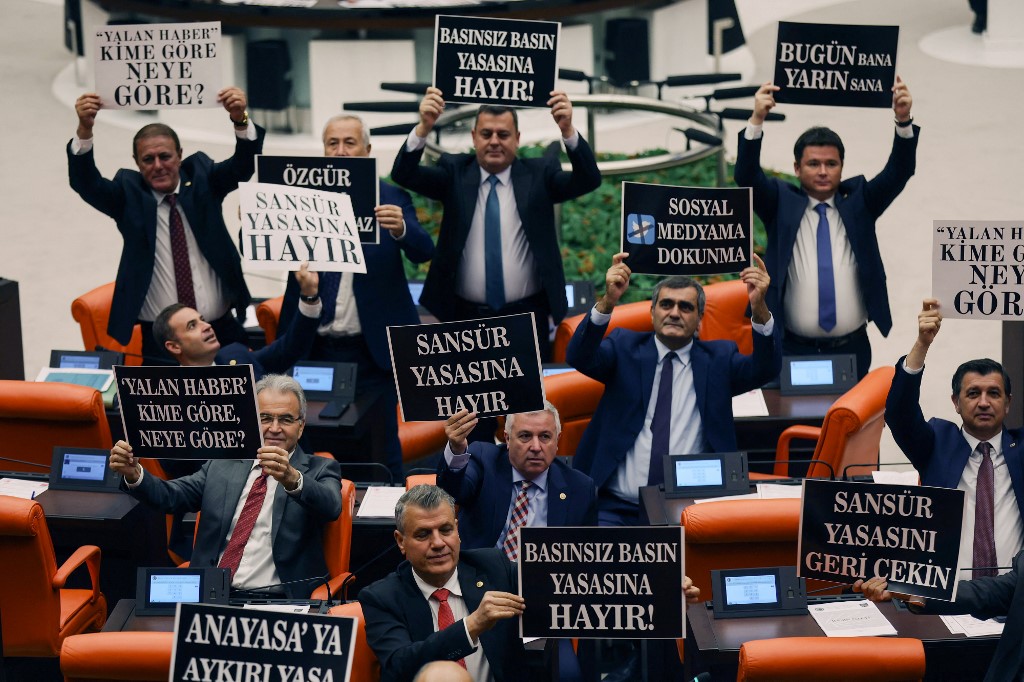Human Rights Watch (HRW) and ARTICLE 19 have condemned the approval of amendments by the Turkish Parliament last week which they said introduce abusive new criminal speech offenses that further deepen online censorship and restrict access to information.
Parliament adopted the law late on Thursday after it was proposed by President Recep Tayyip Erdoğan’s ruling Justice and Development Party (AKP), which says it aims to regulate online publications, protect the country and combat disinformation.
Both groups said in a statement on Friday that the timing of the legislation raises concerns that it is intended to muzzle online reporting and commentary critical of the government of President Recep Tayyip Erdoğan in the run-up to elections in 2023.
“Taken together, the new legislation represents a draconian new chapter ahead of elections in 2023 by increasing the weapons in the government’s arsenal to enforce censorship and tighten control over social media and independent online news sites,” said Sarah Clarke, head of Europe and Central Asia at ARTICLE 19. “With severe penalties against tech companies for failure to comply with user data and content take-down requests, the law will force tech companies to be complicit with an almost total censorship regime.”
The new law has sparked criticism from Turkey’s Western allies and rights groups who said its vague reference to “false or misleading information” can be interpreted differently by courts to punish those critical of the government.
The new legislation consists of 40 articles amending several laws, including the Internet Law, the Press Law, and the Turkish Penal Code (TCK). It makes “disseminating false information” a criminal offense, with prison sentences of between one and three years. It establishes much tighter government control over online news websites and equips the government-controlled Information and Communication Technologies Authority (BTK), charged with regulating the internet, with far-reaching powers to compel social media companies to comply with requests to take down online content and hand over user data or to be subject to reduction of their bandwidth – known as “internet throttling” – if they fail to comply.
ARTICLE 19 and Human Rights Watch as well as other organizations have extensively documented the widespread abuse of the TCK and Anti-terrorism Law provisions to prosecute and convict journalists and any perceived government critic for critical reporting, statements or commentary even though they in no way advocate violence. Under the new legislation, anyone who criticizes the government on online platforms can be prosecuted on disinformation charges.
Noting that social media is one of the last arenas where people have access to independent news and can express themselves with relative freedom after the broad crackdown on media in Turkey, ARTICLE 19 and HRW said the new law seeks to close that space by forcing tech companies to become the apparatus of state censorship.
In 2020 amendments to the Internet Law combined severe sanctions for not appointing a local representative – throttling of up to 90 percent of their bandwidth – with relatively mild sanctions for noncompliance with content removal requests. Tech companies opted to appoint a local representative while pledging to still protect user rights by not responding to all content removal or data requests. ARTICLE 19, HRW and the Freedom of Expression Association (IFOD) warned the tech companies at the time not to set up representative offices in Turkey since, given the hostile environment, this would inevitably lead to their implication in human rights abuses.

